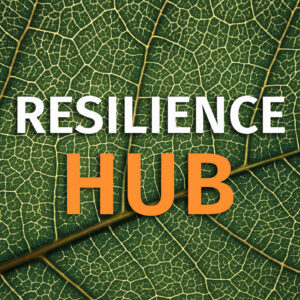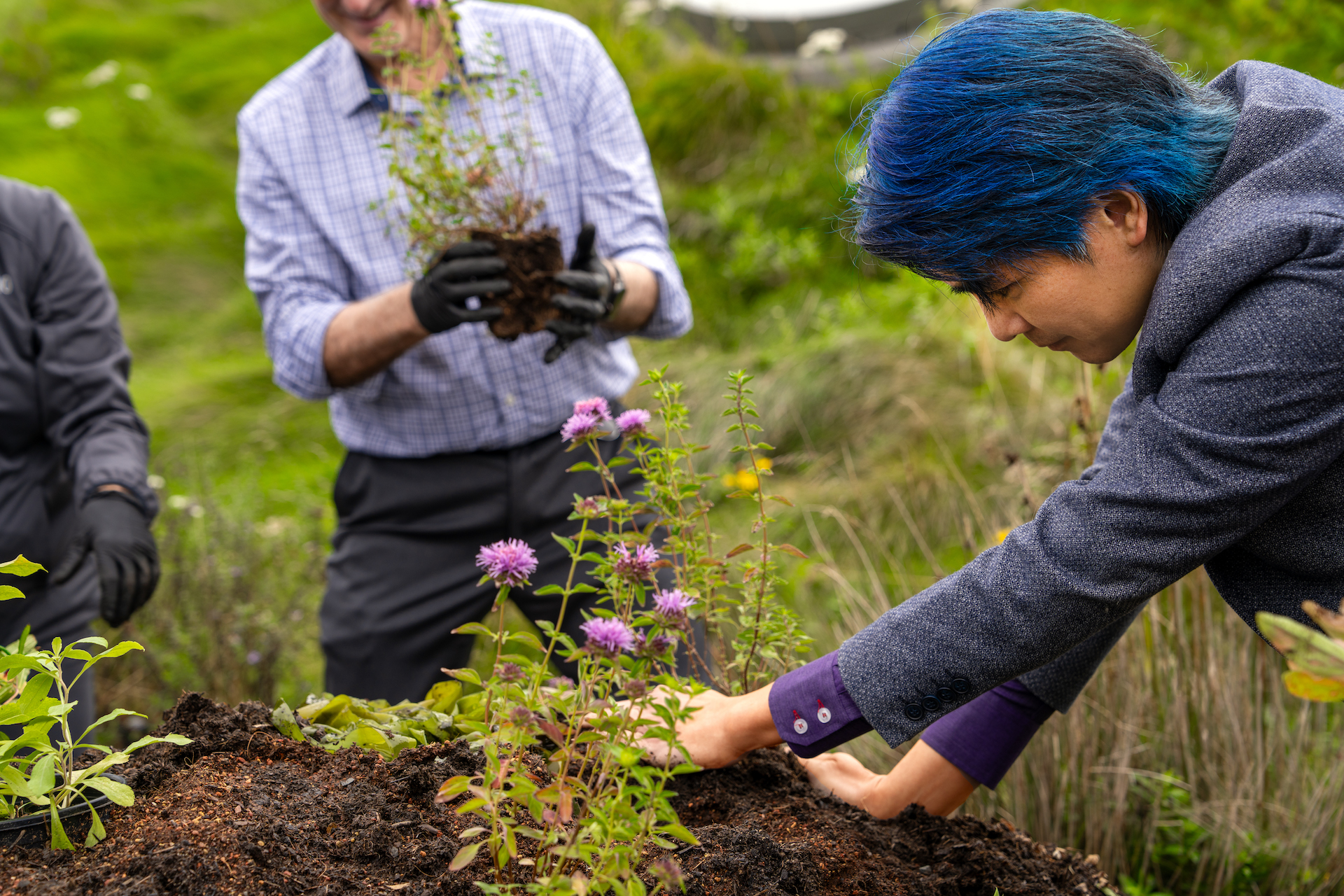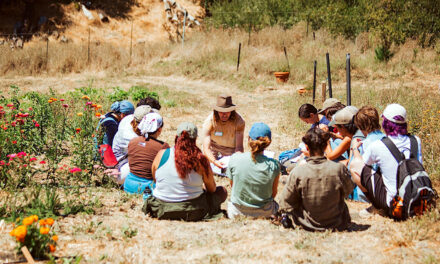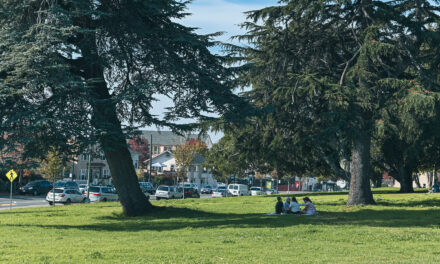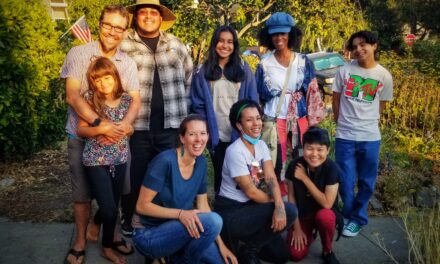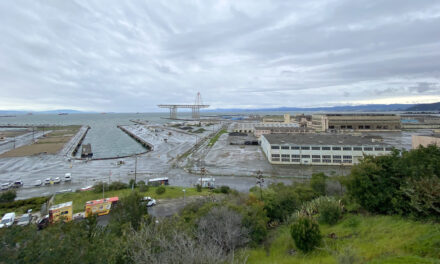SF Hires Fast-Charger to Direct Environment Department
Every month, the board members of San Francisco’s Commission on the Environment convene at City Hall, where they offer advice and shape policy for the city’s Environment Department. Around the two hour mark of last month’s meeting, a drowsiness had settled over most of the room. In contrast, Tyrone Jue, the new Director for the Department of Environment, remained alert and focused. When his colleague finished a detailed presentation about efforts to cut down on pesticide use in the city, Jue was first to speak, asking her to spell out the abbreviations from an earlier slide.
Tyrone Jue’s appointment this July by Mayor London Breed comes after a year of serving as acting-director for the department. He assumed the role after his predecessor resigned amid allegations she accepted a $25,000 bribe from Recology, a Bay Area waste management company (a later audit revealed no wrongdoing). I spoke with Director Jue about his plans to advance the department’s top priority: The implementation of Mayor Breed’s 2021 Climate Action Plan, which aims to achieve net zero emissions for the city by 2040.
“A lot of the strategies [to realize the plan] still need to be developed,” Jue says.
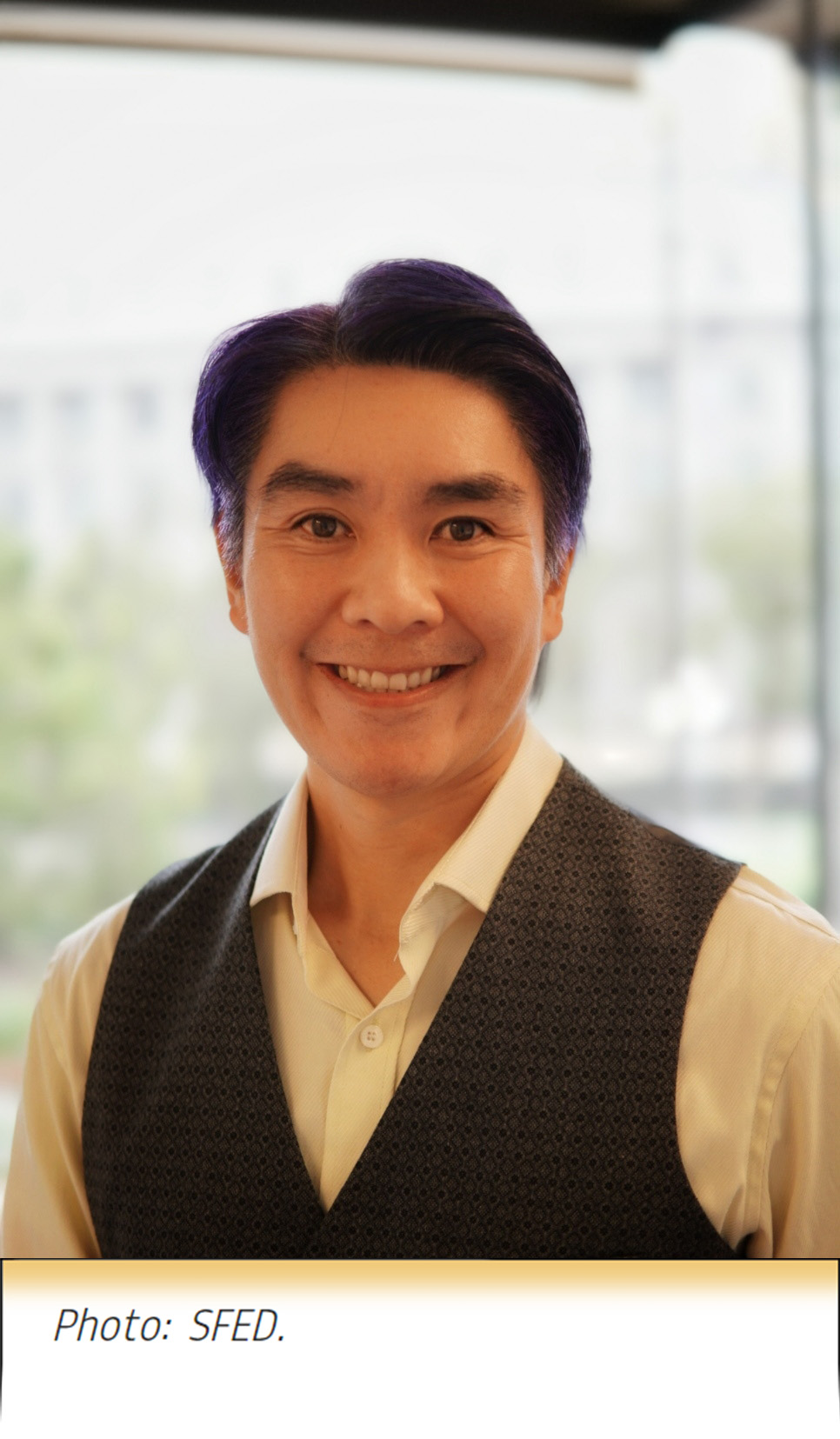
With a two-decade track record of pursuing climate initiatives, Director Jue has earned a reputation as an effective climate leader with a deep appreciation for the multifarious ramifications climate policy has on disadvantaged communities. Notably, as a board member of the Bay Area Air Quality Management District, a public agency that regulates sources of air pollution for the region, Jue played a pivotal role in the district’s 2021 adoption of Regulation 6-5, which required two of the state’s largest oil refineries to reduce their pollution. John Bauters, the current chair for the district, says Jue’s speech at the time, in which he acknowledged the many workers whose jobs would be threatened by the rule, but ultimately prioritized remedying the air quality for the communities near the plan, persuaded other board members. “Tyrone was one of a chorus of directors who helped solidify a strong yes vote,” Bauters says.
Jue has brought this fervor for equitable climate solutions into his new job. Early into his tenure, Jue required that all department staff conduct a racial equity scan of their work. Jue believes the mandate has allowed the department to “be better stewards of public resources and public trust.”
Other Recent Posts
Reforming Rules to Speed Adaptation
Bay Conservation and Development Commission to vote early this year on amendments designed to expedite approval of climate projects.
Warner Chabot Shifts Gears
After 11 years at the helm of the Bay Area’s leading science institute, its leader moves back into the zone of policy influence.
Is Brooklyn Basin Emblematic of Regional Development Vision?
The 64-acre waterfront development adds thousands of new housing units to one of the world’s most expensive places, but questions remain about its future.
Coordinate or Fall Short: The New Normal
Public officials and nonprofits say teaming up and pooling resources are vital strategies for success in a climate-changed world.
Pleasant Hill Gets Sustainable Street Improvements
An intersection redesign with safer bike lanes earned a national Complete Streets award, while sparking mixed reactions from drivers.
Six Months on the Community Reporting Beat
The magazine worked with four journalists in training from community colleges, and began building a stronger network in under covered communities.
Rio Vista Residents Talk Health and Air Quality
A Sustainable Solano community meeting dug into how gas wells, traffic, and other pollution sources affect local air and public health.
New Year Immerses Concord Residents in Flood Preparations
In Concord, winter rains and flood risks are pushed residents to prepare with sandbags, shifted commutes, and creek monitoring.
What You Need to Know About Artificial Turf
As the World Cup comes to the Bay Area, artificial turf is facing renewed scrutiny. Is it safe for players and the environment?
Threatened by Trump’s Policies, GreenLatinos Refuses to Back Down
National nonprofit GreenLatinos is advancing environmental equity and climate action amid immigration enforcement and policy rollbacks.
Jue (left) meets other community leaders at a Cal Academy of Sciences event. Photo: SFED.
This coupling of racial equity and climate action has materialized in the department’s efforts to build more electric vehicle fast-charging stations throughout the city. While Jue was acting director in 2022, the department received a $2.4 million grant to help advance its net zero emissions efforts. Jue made sure the Bayview, a historically underserved neighborhood, wasn’t left out of the mix, enlisting the help of a community-based organization in selecting a site for a fast charging station.
Jue believes his commitment to environmental justice comes from his upbringing. Jue is Chinese American and grew up in San Francisco, living in Chinatown with his grandmother. Given that he comes from a marginalized community, Jue now finds it second nature to consider everyone in the work he champions for the city. He is also humbled to be the first person of color to serve as Director for the Environment Department. “I see myself deeply tied to all the work I do, and it grounds the work,” Jue reflects.
Jue also attributes some of his success to the state of California itself, saying that it not only makes his job easier but also warms his heart to be surrounded by peers pursuing a progressive climate agenda.
Near the end of our conversation, Jue offered advice to the many states, agencies and people who look at his department’s work for guidance. He suggested they reach out to groups that inspire them. “You are not alone, and you do not need to act like you are alone,” he says.
As for advice to youth and future climate leaders, Jue implored them to remain persistent, focused, and hopeful about their potential to address the climate crisis. “Things are never as bleak as they seem because we have the capacity to change and inspire change in others,” he says.
Correction: In the version of this article published on November 15, KneeDeep inaccurately reported that Jue’s predecessor accepted a bribe. This was not the case according to a later audit, and we have since corrected our mistake.



